 In love of home, the love of country has its rise.
In love of home, the love of country has its rise.
Charles Dickens
The two Cecilias locked eyes for what felt like an eternity. “Coño,” Cecilia the younger said, not realizing she’d said it out loud. Her new Abuela Cecilia threw back her head with a hearty laugh. “Tu estás mio, por seguro.” Cecilia realized her grandmother likely spoke little to no English. At that moment, Father Teodor came in with the remainder of the tea tray, put her cup on the tray and set it on the table. He looked at Abuela, saying to her, “Cecilia, sientate, por favor.” He went into the corner and pulled up another 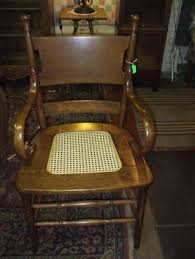 wicker and wood chair for the old woman. She sat, and began to add a mountain of sugar and two squeezes of lemon to her teacup. She then sat back, looking at Cecilia, saying “Tu eres muy bonita.” The priest, having sat down in the other wicker chair, said to Cecilia the younger “Your grandmother says you are very pretty.” Cecilia replied, “Yes, I know. Gracias, ah..Abuela.” She had to get used to this new name for this newly-found relative.
wicker and wood chair for the old woman. She sat, and began to add a mountain of sugar and two squeezes of lemon to her teacup. She then sat back, looking at Cecilia, saying “Tu eres muy bonita.” The priest, having sat down in the other wicker chair, said to Cecilia the younger “Your grandmother says you are very pretty.” Cecilia replied, “Yes, I know. Gracias, ah..Abuela.” She had to get used to this new name for this newly-found relative.
Abuela sipped her tea thoughtfully, and then spoke in Spanish to Father Teodor, who acted as translator. The priest moved his seat over to the left, to be closer to the old woman, whose voice was very soft. She spoke slowly, and the priest frowned in concentration, nodding as he listened. “Your grandfather and I were children together in 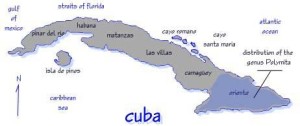 Oriente province.” Father Teodor paused as Abuela continued on with her story. Both sets of parents were teachers, who worked in the village school teaching the children of campasenos to read and write. “Your grandfather…” Abuela paused as she was about to say his name, but obviously changed her mind. “Luego” was all she said. Father Teodor went on. “Your grandfather and I could both read and write by the time we were four years of age. He loved the poetry of
Oriente province.” Father Teodor paused as Abuela continued on with her story. Both sets of parents were teachers, who worked in the village school teaching the children of campasenos to read and write. “Your grandfather…” Abuela paused as she was about to say his name, but obviously changed her mind. “Luego” was all she said. Father Teodor went on. “Your grandfather and I could both read and write by the time we were four years of age. He loved the poetry of  Jose Martí; I favored the more modern and romantic works of Cervantes and especially
Jose Martí; I favored the more modern and romantic works of Cervantes and especially  Dulce Maria Loynaz. Her lyric novel Jardin is probably her best work. You should read it sometime.” And with that, Abuela gave a little laugh. Cecilia wasn’t sure if she was laughing at something Abuela recalled from the book, or at the notion of Cecilia attempting to read a novel written in Spanish. But then Father Teodor went on. “His whole life, your grandfather spoke of nothing but going to the military academy and becoming a soldier. He was quite clear, even at a very young age, that aggression against Cuba by foreign enemies should stop, and he would be the leader to make it stop.” Again, Abuela gently laughed, and then stood up, pretending to march like a toy soldier. She sat down again, shaking her head. Father Teodor continued. “He would march around the garden of my father’s house, holding a branch from the
Dulce Maria Loynaz. Her lyric novel Jardin is probably her best work. You should read it sometime.” And with that, Abuela gave a little laugh. Cecilia wasn’t sure if she was laughing at something Abuela recalled from the book, or at the notion of Cecilia attempting to read a novel written in Spanish. But then Father Teodor went on. “His whole life, your grandfather spoke of nothing but going to the military academy and becoming a soldier. He was quite clear, even at a very young age, that aggression against Cuba by foreign enemies should stop, and he would be the leader to make it stop.” Again, Abuela gently laughed, and then stood up, pretending to march like a toy soldier. She sat down again, shaking her head. Father Teodor continued. “He would march around the garden of my father’s house, holding a branch from the  mariposa tree and saying, “uno, dos tres, quatro..” Father Teodor forgot to translate the numbers into English, but the words in Spanish complemented Abuela’s imitation of the little
mariposa tree and saying, “uno, dos tres, quatro..” Father Teodor forgot to translate the numbers into English, but the words in Spanish complemented Abuela’s imitation of the little  soldier.
soldier.
After her short exertion, Abuela paused to sip her tea and think through what she wanted to say next. Father Teodor continued with his translation. “It was always my intention to become a great chef and work in the hotels in Havana to show the world how wonderful la cocina de Cuba food was. So while your grandfather marched, I would bring my little tea set out to the garden and prepare small cakes and tea for my dolls. When I would call your grandfather to sit with us, he would frown and say that soldiers do not take 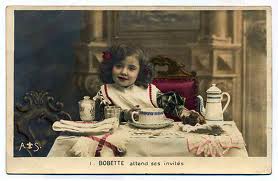 tea with little children and continue his marching.” This vision made Cecilia laugh along with Abuela at the thought of the two children and their innocent play.
tea with little children and continue his marching.” This vision made Cecilia laugh along with Abuela at the thought of the two children and their innocent play.
Abuela took a last, long sip of her tea and then got up to return the cup to the tea tray. She returned to her seat, and put her head back in concentration. Father Teodor went on. “As we grew older, we continued to be inseparable. I supposed our parents always assumed we would marry some day. But life and politics always seemed to get in the way. In 1949, your grandfather applied for admission to the Military Academy in Havana, the most prestigious military school of that time. He waited patiently for word of his admission, but word did not come. Finally, he walked all the way to Havana to find out his status. As he entered the admissions office of the school, he politely asked to speak to someone about his application. He gave his name..” again Abuela caught herself as she was about to say his name..”and when he did he was told to wait. He told me he waited for two hours. Finally, a young woman took him outside into the parade square. She quietly told him that his application was discarded, not because he wasn’t qualified, but because his parents were suspected of having ‘tendencias socialista’.” At that time, 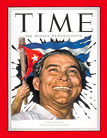 Batista had not yet solidified his power, and unrest in military ranks was blamed on the infiltration of the Communists. Your grandfather walked home, heartbroken.
Batista had not yet solidified his power, and unrest in military ranks was blamed on the infiltration of the Communists. Your grandfather walked home, heartbroken.
Abuela paused again, spoke rapid Spanish to Father Teodor, and excused herself to use the bathroom. The priest and Cecilia spoke briefly about how beautiful the garden was in the twilight, as it was now nearly 7 pm. Abuela returned, and sat back in her chair. Father Teodor again spoke to Abuela in Spanish, pointing at his watch, so likely pointing out how late it was getting. She replied quickly, and Father Teodor looked at Cecilia. He said “She has more to share with you, and wants to finish.” Cecilia nodded. Abuela began to speak again, and the priest shared her words in English. “At that time there were no culinary schools that admitted women in Cuba. In fact, women were not given the vote until 1933, with the 100-day government of Ramón Grau. If a woman wanted to be a chef, she had to start by getting a job washing dishes at a Havana hotel. And that is what I did – first at the Tropicana and then the 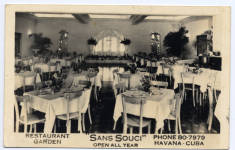 Sans Souci outside Havana. I’d just been promoted from dishwasher to hostess when your Abuelo came to my boarding house one afternoon. I was getting ready to go to work for the dinner shift, and he visited with me in the front room. Remember, nieta, in those days we were very proper and did not behave in the way young people seem to today. When he came to see me he looked embarrassed, but wanted to tell me something. Finally, he blurted it out: since he could not become a soldier, he had joined the police force in Havana. The corruption and nepotism he found in the police force had disillusioned him, so instead, he has just joined the army as a private. Ay, Dios Mio!” Abuela said this loudly, as though she were recalling her conversation with Abuelo that day. Father Teodor had no need to translate that phrase.
Sans Souci outside Havana. I’d just been promoted from dishwasher to hostess when your Abuelo came to my boarding house one afternoon. I was getting ready to go to work for the dinner shift, and he visited with me in the front room. Remember, nieta, in those days we were very proper and did not behave in the way young people seem to today. When he came to see me he looked embarrassed, but wanted to tell me something. Finally, he blurted it out: since he could not become a soldier, he had joined the police force in Havana. The corruption and nepotism he found in the police force had disillusioned him, so instead, he has just joined the army as a private. Ay, Dios Mio!” Abuela said this loudly, as though she were recalling her conversation with Abuelo that day. Father Teodor had no need to translate that phrase.
Abuela continued, seemingly in a hurry to finish her story. The priest leaned again toward her to hear and translate. “The idea that anyone connected with either of our families would affiliate with the Batista government was unthinkable. But your Abuelo insisted he knew what he was doing, and that governments come and go, but the need to protect Cuba from foreign intervention remained. So he became a soldier. And he was a good soldier, always doing his duty but staying away from politics and never getting involved in the corrupt activities associated with the government at that time. Over the next several years, both our careers were on the rise. By now I was working in the Sans Souci kitchen as the sous chef, and my sauces were very well regarded by all our customers. The bosses were very happy with my work. Your grandfather rose to the rank of captain, and supervised an infantry company of over 100 men. All was well: we were planning on being wed as soon as I was promoted to chef at the hotel. But in 1956, all that changed.
Abuela stopped again, and arched her back, appearing hesitant to discuss some uncomfortable episode from the past. She began speaking, with the priest’s assistance in translating. “In March 1956, Ramón Barquín staged an attempted coup called The Conspiracy of the Pure, so-named because of the good record of the officers involved. In November, 1956, Fidel returned from exile in Cuba on the yacht  Granma, and unrest against Batista began to increase very, very much. He saw enemies everywhere, in particular from the students who were more organized and active than the rest of the populace. Batista decided to crack down, and started a repressive campaign against these students and their teachers. One day your grandfather’s superior officer came to him with a list of names that were to be arrested. Included on the list were your great grandparents, his mother and father. Your grandfather explained that this must be a mistake! His parents were teachers in Oriente province, and had nothing to do with student unrest in Havana. His superior officer replied that all teachers in Oriente province were to be arrested. Wasn’t Oriente where the Moncada Army Barracks were attacked by Fidel, his brothers and their little rag-tag army? Again, your grandfather protested that his parents were innocent. Three times he begged that his parents be spared, as he knew their arrest would lead to prison and likely to execution. But his pleadings were to no avail. Finally, his superior officer said ‘either you arrest all these socialist teachers, or you will be arrested for insubordination’.” She paused, and shook her head. Then she continued.
Granma, and unrest against Batista began to increase very, very much. He saw enemies everywhere, in particular from the students who were more organized and active than the rest of the populace. Batista decided to crack down, and started a repressive campaign against these students and their teachers. One day your grandfather’s superior officer came to him with a list of names that were to be arrested. Included on the list were your great grandparents, his mother and father. Your grandfather explained that this must be a mistake! His parents were teachers in Oriente province, and had nothing to do with student unrest in Havana. His superior officer replied that all teachers in Oriente province were to be arrested. Wasn’t Oriente where the Moncada Army Barracks were attacked by Fidel, his brothers and their little rag-tag army? Again, your grandfather protested that his parents were innocent. Three times he begged that his parents be spared, as he knew their arrest would lead to prison and likely to execution. But his pleadings were to no avail. Finally, his superior officer said ‘either you arrest all these socialist teachers, or you will be arrested for insubordination’.” She paused, and shook her head. Then she continued.
“And so, your grandfather was arrested and taken to 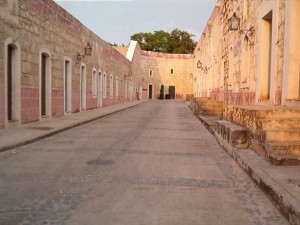 La Cabaña prison. There was a trial of sorts, and then he was sentenced to die by firing squad. In February of 1957, your grandfather and two other army officers were taken to the courtyard, still in their uniforms. I arrived at the gate just as the colonel was raising his sword. I heard him say, “Ready!
La Cabaña prison. There was a trial of sorts, and then he was sentenced to die by firing squad. In February of 1957, your grandfather and two other army officers were taken to the courtyard, still in their uniforms. I arrived at the gate just as the colonel was raising his sword. I heard him say, “Ready!
Aim! Fire!”. With that, the 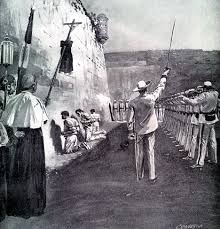 firing squad fired, and all three men slumped to the ground. I did the same. My life as I knew it was over.”
firing squad fired, and all three men slumped to the ground. I did the same. My life as I knew it was over.”
By this time it was 7:45. Abuelo turned to Father Teodor, saying “Estoy Cansado. Vamos a mi casa por la cena.” Father Teodor turned to Cecilia, and said “Your …” he hesitated… “grandmother says she is tired and wants us to go down the street to her house for dinner.” Cecilia couldn’t believe the old woman had stopped at this point in her recitation. “Please, tell me the rest of the story,” she pleaded. The old woman smiled, and said “en tiempo, en tiempo.” With that, she rose, told Father Teodor “Gracias,” and went out the front door. Cecilia could do nothing but stare at the door and wonder what she would hear next from the old woman.
